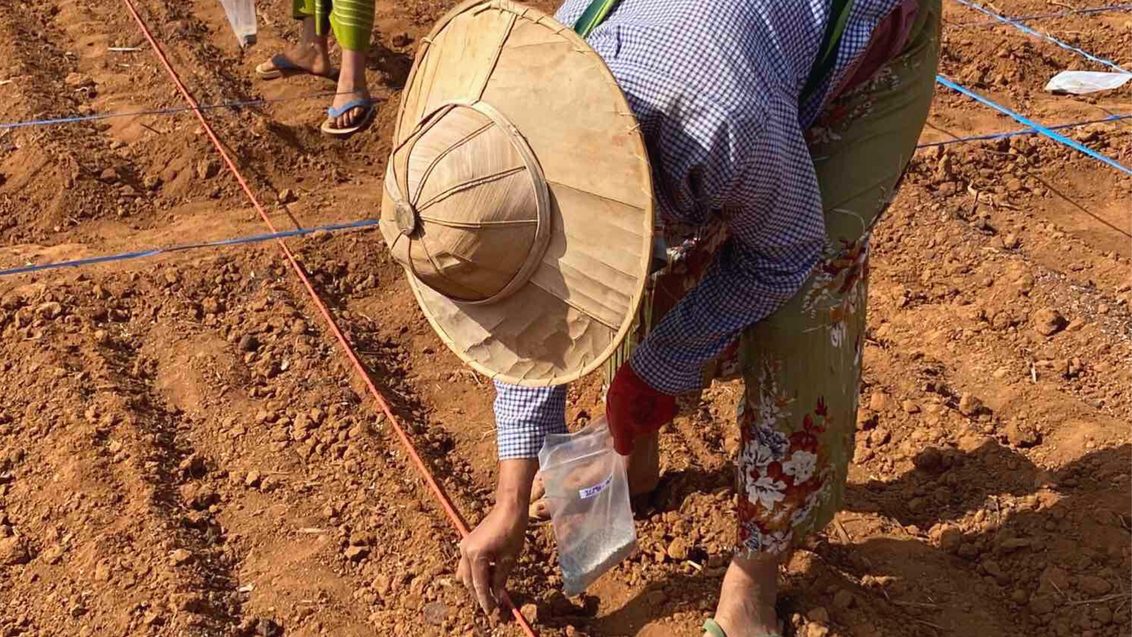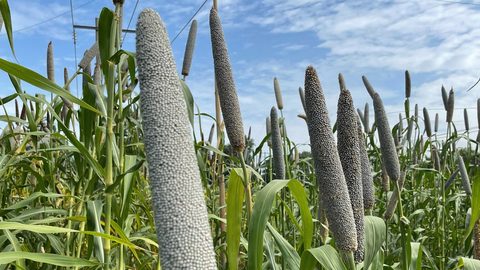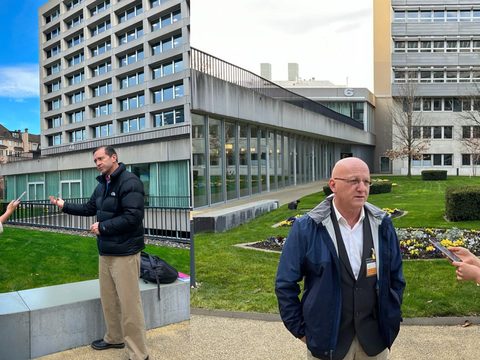The Nutritional Powerhouse amidst the Context of Climate Change

As a rice-centric country, Myanmar’s agricultural landscape has long been dominated by rice cultivation. However, amid nutritional challenges and the consequences of climate change, it is becoming increasingly vital for Myanmar to diversify from the main staple food rice. Crop diversification is essential not only to develop climate resilience agriculture, but also to provide a solution on a nutritional standpoint.
There is one crop which is perfectly adapted to this challenging context: pearl millet. With remarkable nutritional benefits, pearl millet is a type of cereal that is hardy and tolerant to drought conditions. Afterwards, a question arose regarding the selection of the variety that is most suited to the conditions of Myanmar and that could contribute remarkable benefits, including addressing the widespread micronutrient deficiencies in certain communities, such as iron deficiency. With these conditions, an innovative solution has emerged: the introduction of a biofortified – iron-enriched pearl millet.
Despite the promotion and encouragement of the use of smart foods such as sorghum and millets today by consumers and international organisations, pearl millet is still classified as a neglected crop in Myanmar due to a weak value chain. Today, a number of farmers from the Central Dry Zone of Myanmar only grow pearl millet for fodder purposes and prefer to plant FFS (Farm Saved Seeds)* of open-pollinated varieties rather than testing smart food seeds.
The Syngenta Foundation for Sustainable Agriculture (SFSA) operates in Myanmar and, under the Seeds2B (Seeds to Business) ASIA program, provides support for the capability-building of local seed companies since 2019. Moreover, in collaboration with multi-stakeholders, the Syngenta Foundation acts as a catalytic capability-builder in the initiatives and projects undertaken. For instance, SFSA developed a variety commercialization guideline which outlines the systematic approach needing to be adopted for the launching of a new variety. In the context of Myanmar, the Seeds2B team provides capability-building support to local seed partners by guiding them through the critical steps for the launch of a new variety.
To revitalize the value chain of pearl millet and to introduce the biofortified pearl millet in Myanmar, the foundation team collaborated with AWBA – a leading Myanmar-owned agricultural corporation. Furthermore, as a catalytic capability builder, the foundation also engaged with ICRISAT to develop and provide a suitable iron-enriched pearl millet variety.
Initiated in 2021, this 5-year collaboration project is still in the process of evaluating the performance of the candidate varieties. Once the performance and the adaptability of the varieties has been verified and their value has been determined, the selected varieties will then be registered by our partner, AWBA. The introduction of a certified iron-enriched pearl millet variety in Myanmar will mark a transformative change. In particular, it will be an asset in the combat against iron deficiency and in the building of climate resilience for smallholder farmers.
*Farm Saved Seeds are seeds planted on a farmer’s own land, deriving from seeds harvested from their own individual holding.
This article is by Maëlle Lefeuvre, currently on a communications internship at our Foundation.


